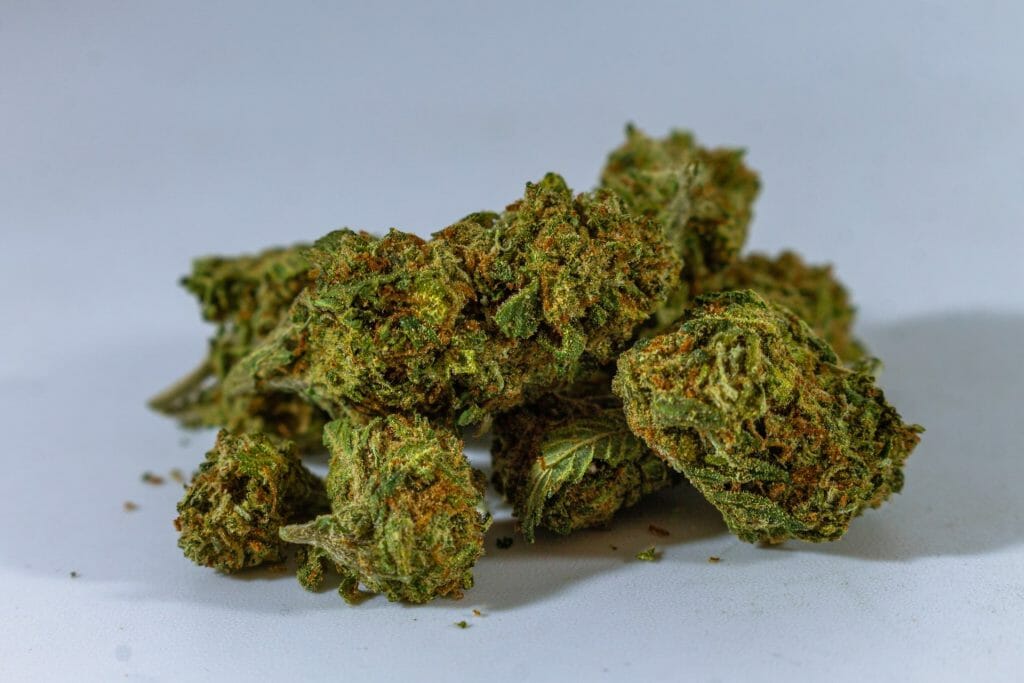The cannabis industry in Canada is rapidly adapting to the needs of health-focused consumers, with an increasing number turning to cannabis products for pain relief, muscle recovery, and stress alleviation.
From renowned athletes to wellness advocates, individuals are discovering that cannabis can serve as a potent ally in achieving peak physical and mental well-being. In this blog post, we will explore how the cannabis industry is transforming the health and fitness landscape and how marijuana is gaining traction as a preferred method for enhancing overall wellness. Stop what you’re doing and read on to find out more about West Coast Cannabis Canada and cannabis!
Table of Contents
The Science Behind Cannabis and Wellness
How Cannabis Works in the Body
Cannabis influences the body’s endocannabinoid system, a sophisticated network of receptors and neurotransmitters that regulates various physiological functions, including mood, appetite, pain perception, and immune responses.
Tetrahydrocannabinol (THC) and cannabidiol (CBD) are the two primary components of cannabis that engage with the endocannabinoid system. THC is responsible for the psychoactive effects of cannabis, while CBD is non-psychoactive and is recognized for its potential medicinal benefits.
When cannabis is consumed, THC and other cannabinoids, primarily located in the brain, nervous system, and immune system, bind to cannabinoid receptors in the body. This interaction can lead to various effects, such as euphoria, altered time perception, increased appetite, and mood fluctuations.
CBD may address several conditions, including chronic pain, anxiety, and epilepsy, by interacting with other receptors in the body that are involved in pain modulation and inflammation, rather than directly binding to cannabinoid receptors.
Effects of Cannabis Near Me on Wellness and Fitness
While further research is essential in the field of cannabis, several sources indicate promising outcomes. Here are a few examples:
Pain Management
Cannabis has shown potential benefits for pain management in many patients with chronic pain or injuries. Individuals suffering from chronic pain who utilized cannabis reported significant reductions in overall discomfort.
Muscle Recovery
The application of cannabis may assist in muscle recovery post-exercise. Research published in the International Journal of Physical Education, Sports and Health suggests that athletes who trained and consumed CBD after workouts experienced quicker recovery times and significantly less muscle soreness at intervals of 24, 48, and 96 hours following exercise.
Stress Relief
Recent studies have indicated that cannabinoids could be effective in treating PTSD. One study demonstrated that cannabis usage could decrease activity in the amygdala, which is responsible for fear responses to perceived threats.
Conversely, another study suggests that the cannabinoids found in the plant may aid in the extinguishing of traumatic memories. These effects hold therapeutic promise for individuals coping with PTSD, according to recent research.
Cannabis and Physical Wellness
The active compounds in cannabis, referred to as cannabinoids, interact with the body’s endocannabinoid system, which oversees pain, inflammation, and immune function.
Cannabis can effectively alleviate pain associated with neuropathy, cancer, and multiple sclerosis. THC activates the same receptors in the brain involved in pain regulation, leading to pain relief.
Cannabis and Mental Wellness
The cannabinoids engage with the body’s endocannabinoid system, which manages mood, anxiety, and stress. Studies have shown that cannabis can effectively reduce symptoms of anxiety and stress.
THC, the primary psychoactive component of cannabis, has been found to activate specific brain receptors that regulate anxiety and stress responses, producing a calming effect. CBD, another cannabis compound, has also demonstrated potential anti-anxiety properties.
Some individuals use cannabis as a method to unwind and relax after a challenging day or to assist with sleep issues. Cannabis can have sedative effects, which may be beneficial for those struggling with sleep disturbances related to stress or anxiety.
Examples of Meditation Practices that Incorporate Cannabis Use
It is crucial to recognize that using cannabis before or during meditation can produce various effects on both body and mind and may not be suitable or safe for everyone.
Here are some examples of meditation practices that individuals might incorporate cannabis use into:
Mindfulness Meditation
Many people find that cannabis can facilitate a more relaxed and focused state, which can enhance mindfulness meditation. Some individuals also report that cannabis helps them become more attuned to bodily sensations and emotions, a vital aspect of mindfulness meditation.
Guided Meditation
Certain guided meditations are specifically designed to be paired with cannabis usage. These meditations may incorporate music or soundscapes intended to complement the effects of cannabis, helping users feel more relaxed and focused.
Yoga Nidra
Yoga nidra is a type of guided meditation often utilized for relaxation and stress relief. Some individuals believe that cannabis can enhance the experience of yoga nidra, as it may promote feelings of relaxation and presence.
Transcendental Meditation
Transcendental meditation involves repeating a mantra to quiet the mind and achieve deep relaxation. Some practitioners find that cannabis helps them reach this state more effortlessly and maintain focus on their mantra.
Conclusion
Cannabis is swiftly reshaping the health and fitness industry, as more individuals explore its potential health benefits. Numerous cannabis stores online, such as West Coast Cannabis Canada, are available for your convenience. Their knowledgeable staff can address all your inquiries regarding cannabis. Ensure that you are 18 years of age or older before visiting a cannabis store.
While cannabis has traditionally been linked to recreational use, its efficacy and potential for treating a variety of health conditions are increasingly being documented. From pain management to anxiety reduction, cannabis has the potential to help individuals lead healthier and more active lives.
“`



